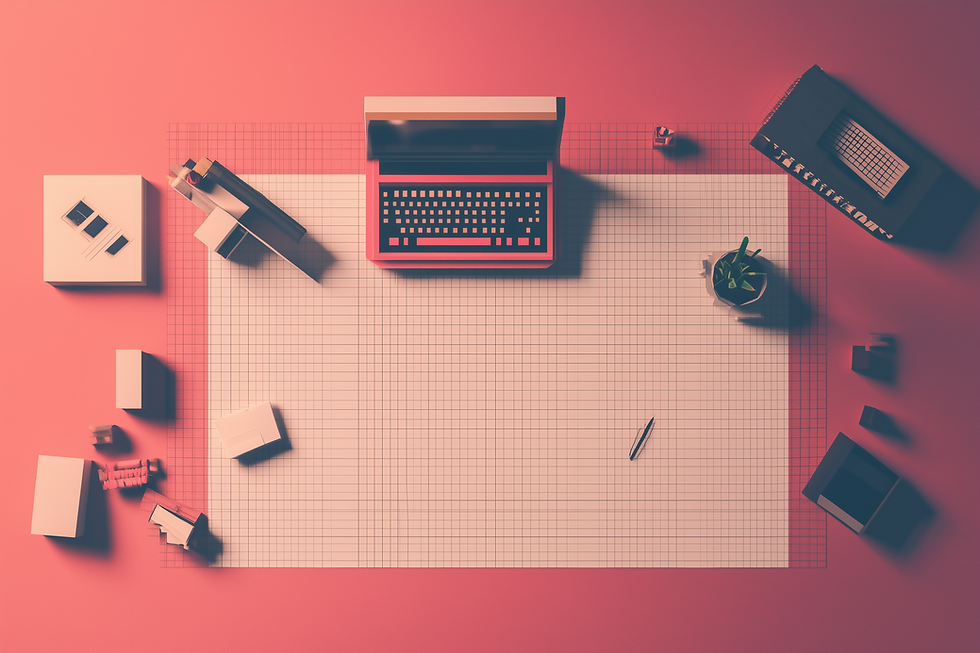Architects, Is Your Profession Ready for AI?
- Yoshi Soornack
- Sep 7, 2025
- 4 min read

The Royal Institute of British Architects (RIBA) has thrown down the gauntlet. With its new AI Challenge, it is calling on architects to not just embrace the age of artificial intelligence, but to lead it. This is not just a story about architecture. It is a story about the future of all professional services. From law and accounting to consulting and engineering, the professions are at a crossroads. The same technologies that promise to make us more efficient, more innovative, and more valuable to our clients also threaten to automate our jobs, devalue our expertise, and commodify our services.
The RIBA's own research highlights this paradox. A recent report revealed that while 41% of UK architects are now using AI, a significant 58% believe it increases the risk of their work being imitated. This is the central challenge that all professional services must now confront: how to harness the power of AI without sacrificing the very things that make us professionals in the first place - our creativity, our judgment, and our ethical responsibility to our clients and to society.
The future of professional services will not be about man versus machine. It will be about man with machine. The professionals who thrive will be those who can augment their own intelligence with the power of AI.
The Automation of Expertise
The fear that AI will automate the jobs of professionals is not new. It has been a recurring theme in science fiction for decades. But what was once science fiction is now becoming a reality. A recent Goldman Sachs report estimated that 37% of tasks in the architecture and engineering sectors could be automated by AI. This is a sobering statistic, and it is one that should be a wake-up call for all professionals. The idea that our expertise can be codified and automated is a direct challenge to our professional identity.
However, it is also important to remember that automation is not the same as replacement. The fact that some of our tasks can be automated does not mean that our jobs will disappear. It simply means that our jobs will change. The professionals who will thrive in the age of AI will be those who can focus on the tasks that cannot be automated: the tasks that require creativity, critical thinking, and emotional intelligence. As a recent Dezeen article notes, some experts believe that AI will free up architects to focus on the more creative aspects of their work, while others warn that it could lead to a future of "boring buildings."
A New Challenge for Professionals
The rise of AI is also creating a new challenge for professionals: the trust deficit. As AI systems become more sophisticated, it will become increasingly difficult for clients to distinguish between the work of a human professional and the work of a machine. This could lead to a decline in trust in the professions, as clients become more sceptical about the value of human expertise.
This is a particularly acute challenge for professions like architecture, where the safety and well-being of the public is at stake. As the new RIBA president, Chris Williamson, noted in a recent Building.co.uk article, architects have a professional and ethical responsibility to their clients and to society. This responsibility cannot be delegated to a machine. The challenge for architects, and for all professionals, is to find a way to use AI in a way that enhances, rather than diminishes, the trust that our clients place in us.
In the age of AI, trust is the new currency. The professionals who will succeed will be those who can earn and maintain the trust of their clients.
A New Social Contract for the Professions
The rise of AI is forcing us to rethink the very nature of professionalism. The traditional model of the professional as a lone expert is becoming obsolete. In its place, a new model is emerging: the professional as a collaborator, a facilitator, and a trusted advisor. This new model requires a new set of skills, a new set of ethics, and a new social contract between the professions and society.
This new social contract must be based on a shared commitment to transparency, accountability, and the responsible use of technology. It must recognize that AI is not a neutral tool; it is a powerful force that can be used for good or for ill. And it must be based on a shared understanding that the ultimate goal of all professional work is to serve the public interest. As a recent BCG report on AI at work highlights, the companies that are most successful with AI are those that are able to build a culture of trust and collaboration between humans and machines.
The Future is a Design Project
The future of professional services is not something that will be dictated to us by the technologists. It is something that we, as professionals, have the power to shape. The RIBA AI Challenge is a powerful reminder of this fact. It is a call to action for all professionals to engage with the challenges and opportunities of AI, and to design a future of work that is not only more productive, but also more human. The future is a design project, and we are all on the design team.
Are you ready to start designing? Subscribe to Project Flux for the insights and inspiration you need to shape the future of your profession.
References
Dezeen, "Forty-one per cent of architects now using AI" says RIBA report
Building.co.uk, "New RIBA president urges architects to meet AI challenge ‘head on’"
RIBA, "Artificial Intelligence: the unreliable outlier driving the future of architecture"
PBC Today, "RIBA president calls on architects to rise to ‘daunting’ AI challenge"



Comments